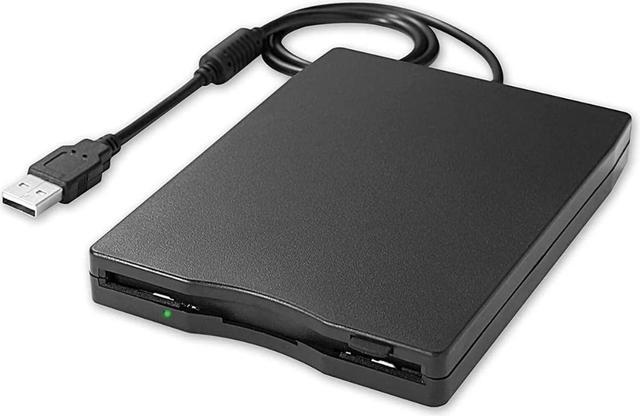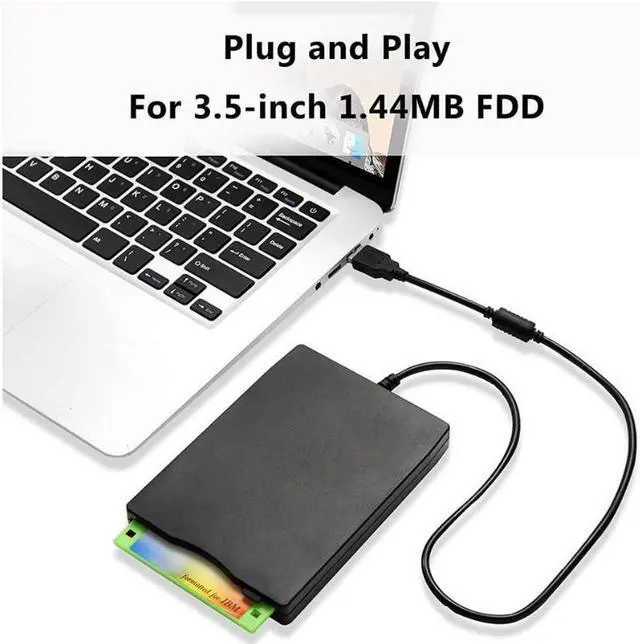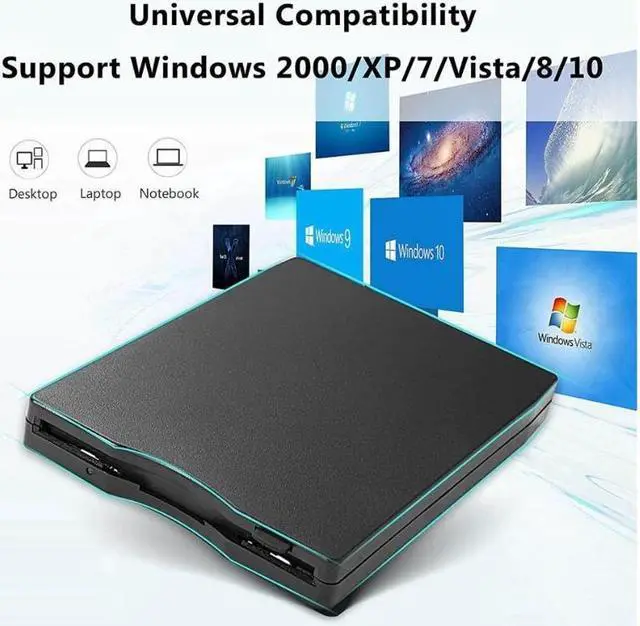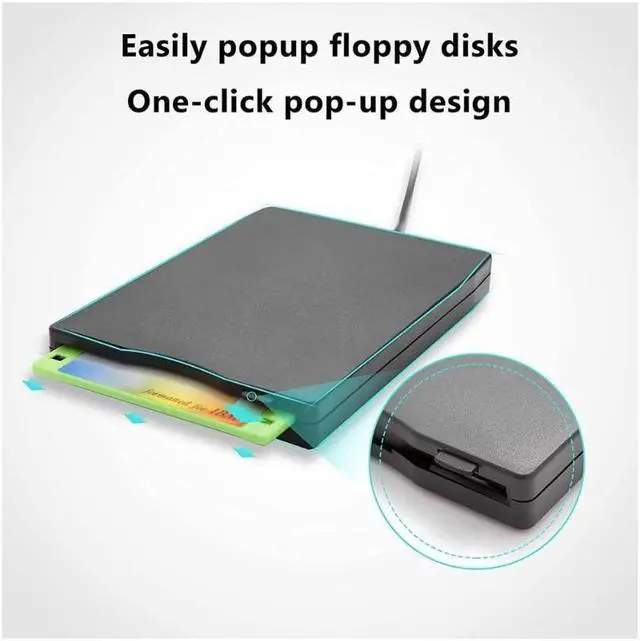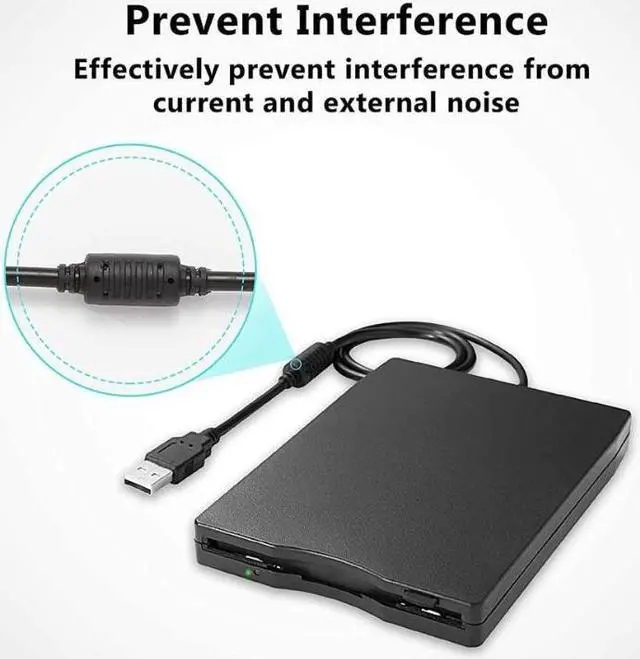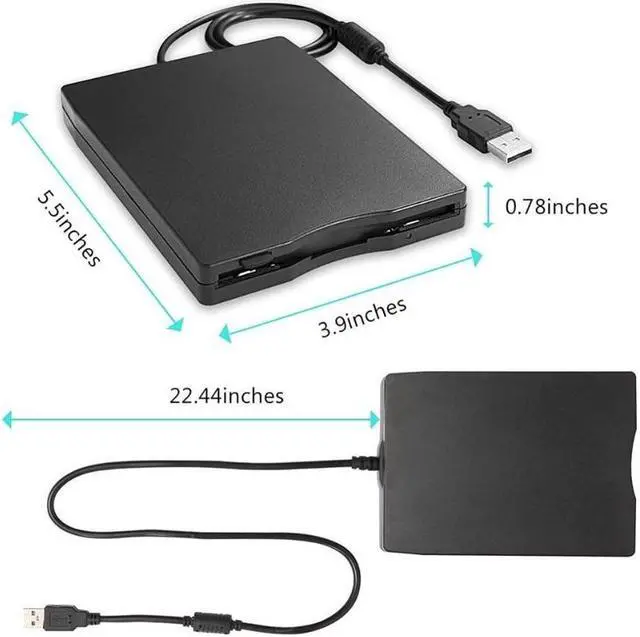Features:
[High Quality and Durable]: Made of high-quality materials, this usb floppy drive is very durable. The appearance of the usb floppy disk reader is very classic. At the same time, its surface can prevent fingerprints.
[Plug and Play]: No driver needed. USB 1.1 / 2.0 is compatible. You can use it to see fond memories from decades ago or other tasks that need to read the contents of a floppy disks. The interference preventer makes data transmission more stable.
[Universal Compatibility]: Support Computer, Laptop, Desktop, Notebook with Windows 2000/XP/Vista/7/8 for Dell, HP, Lenovo, ASUS etc.
[On-click Pop-up Design]: Really easy to use. You can easily remove the floppy disk just by pressing the button.
[Ultra Slim and What you get]: The dimensions of this USB Portable Diskette Drive are 5.4 x 3.9 x 0.78 inches. It is very slim, Lightweigt and easy to carry.
Package content: 1 x USB Portable Diskette Drive, 1 x
User manual. (Note: Since this floppy drive is driver-free and plug-and-play, the CD-ROM for Driver is not included in the package. )
Specifications
:
USB 1.1 / 2.0 Compatible.
3.5 -inch 720KB/ 1.44MB FDD
Data Capacity: 720KB* 1.44MB (Formated)
USB Data Transfer Speed: Full Speed 12Mbps
Data Transfer Rate: 250 Lbits (720KB) /500 Kbits ( 1.44MB )
Operating systems supported: Windows 2000/XP/Vista/7/8
Things you may be concerned about.
Q1. The computer does not recognize the floppy drive..
A1: Please check that you have the floppy drive plugged into USB 2.0 and not USB 3.0. After plugging the floppy drive into your computer, please wait 5-10 seconds for the driver to install automatically.
Q2. Will this drive work on Windows 10?
A2: Theoretically, the floppy drive will work on Windows
10. However, the floppy drive may not be recognized due to operating system software updates and other reasons. Please reinsert the floppy drive into another USB port and make sure it is USB 2.0.
Q3. Cannot read data from the floppy drive
A3: Please make sure your floppy disk is in good condition. Because your floppy disk may have been damaged because it has been there for many years. Or, please use another computer to try to connect again.
Warm Tips
1. Due to differences in operating system configuration or damaged floppy disks, the floppy drive may not read all floppy disks.
2. During use, the computer cannot read the data and prompts for formatting, because the data may have been damaged due to long-term storage. Please contact a professional for recovery.
3. Please do not use the USB Hub to connect the floppy drive. The floppy drive cannot work normally due to reasons such as insufficient or unstable power supply of the USB Hub.
4. Since this floppy drive is driver-free and plug-and-play, the CD-ROM for Driver is not included in the package.
Package content:
1 x USB Portable Diskette Drive
1 x User manual
